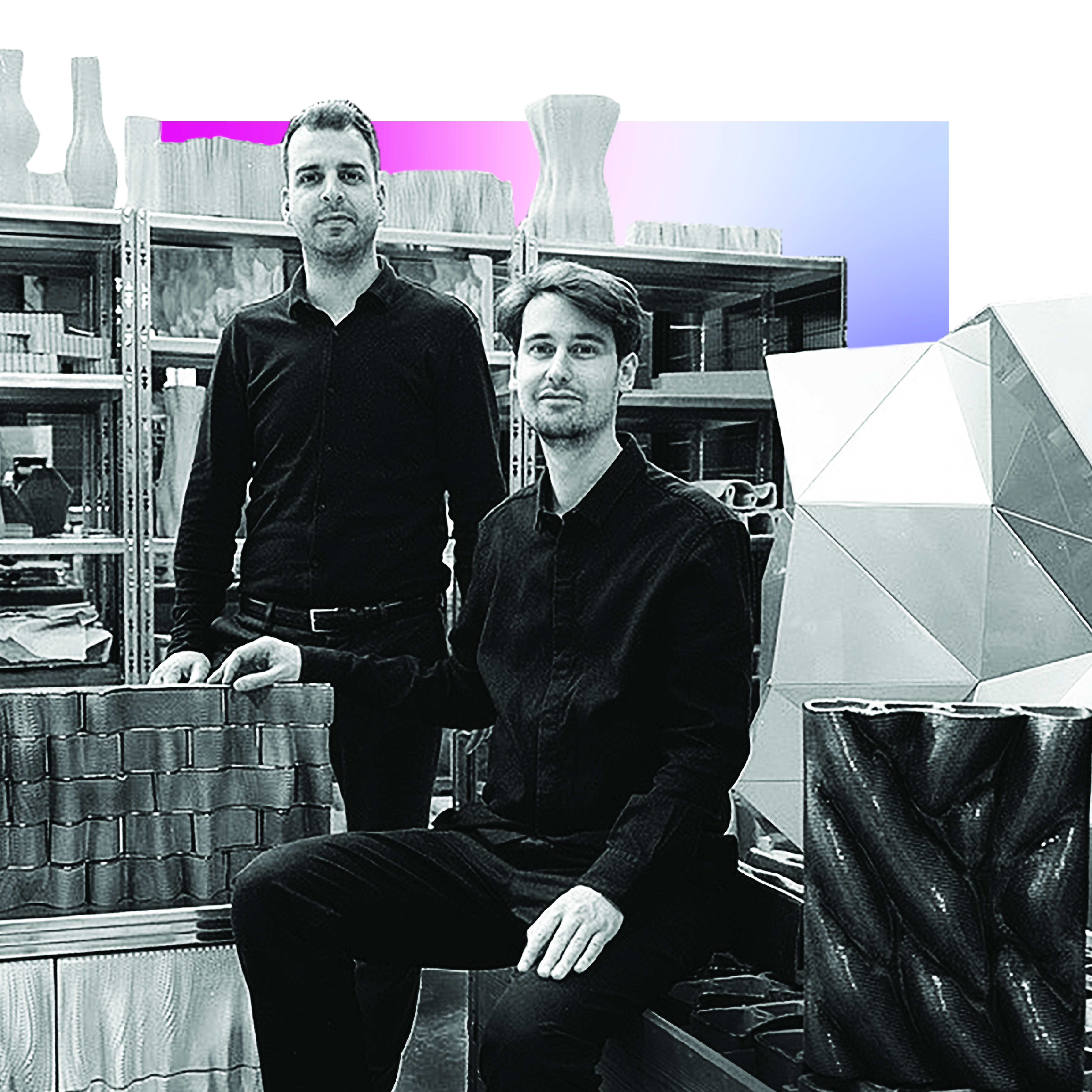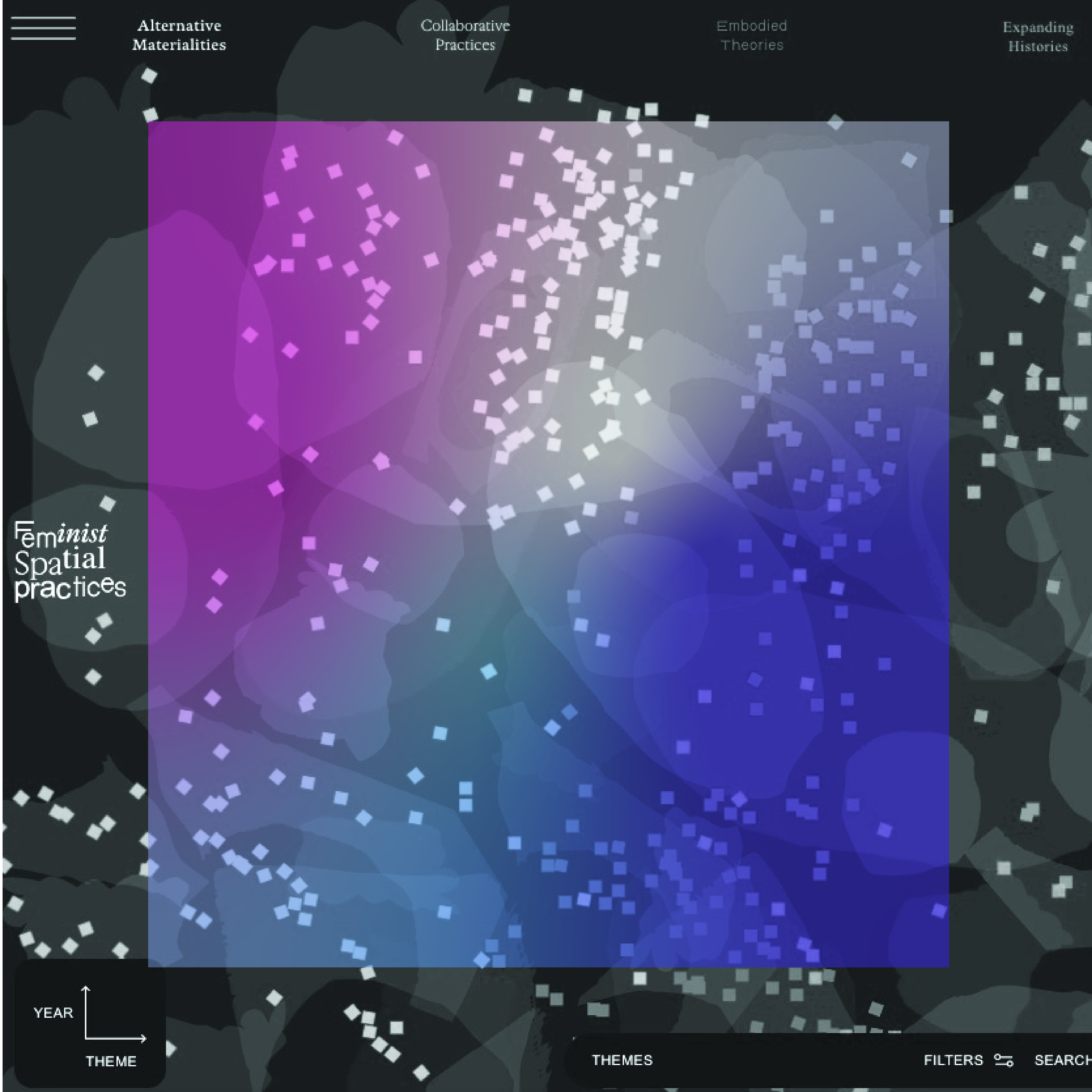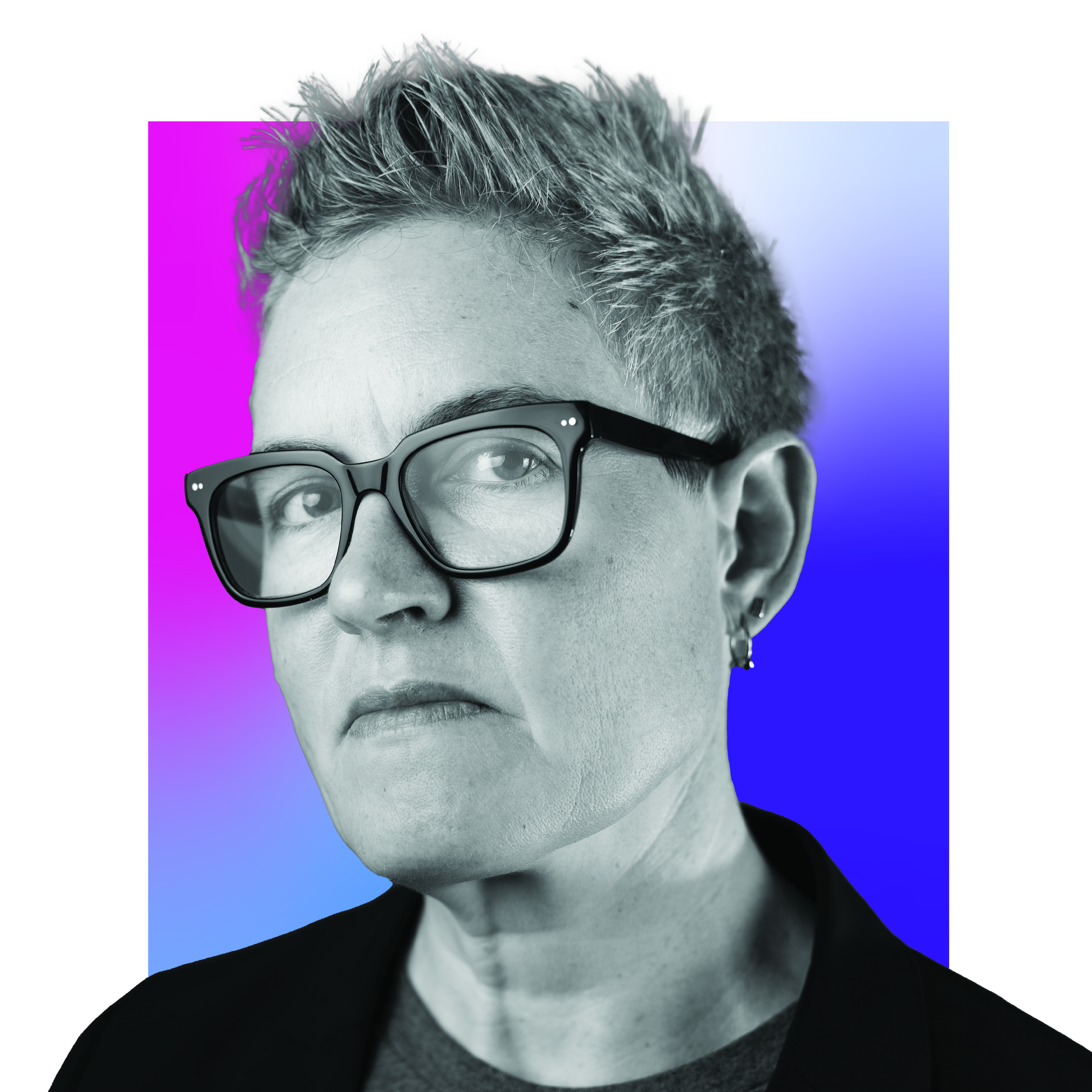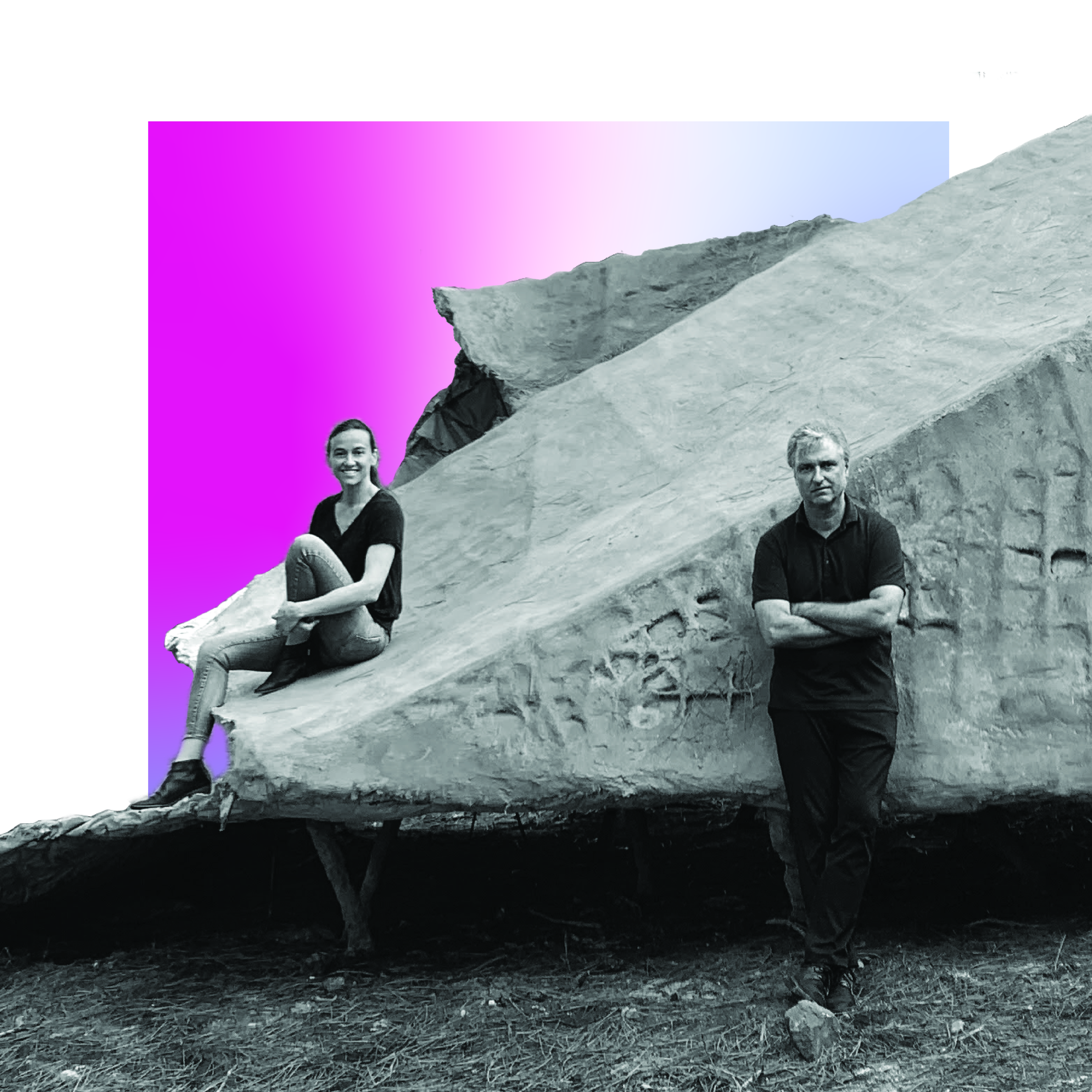ACADIA Awards of Excellence
Established in 1998, the ACADIA Awards of Excellence honor outstanding contributions to architectural computing. Originally focused on Teaching, Service, and Research, the program has expanded over time to include Digital Practice, Society, and, more recently, the Impact Award, which recognizes innovative educational and community initiatives. Each year, select individuals or programs are recognized for exceptional and innovative achievements that advance the field of digital design.
ACADIA 2025 Innovative Research Award of Excellence
This award recognizes innovative research that contributes to the field of digital design in architecture. The award distinguishes research with the potential to transform contemporary architecture.

Tsz Yan Ng
Associate Professor, Taubman College of Architecture & Urban Planning, University of Michigan
Tsz Yan Ng is the principal of an architecture and art practice with built works in the United States and China. Common to her practice and interdisciplinary research are projects that deal with questions of labor in various facets and forms, underscoring broader issues of industrial manufacturing, human crafting, technology, and aesthetics. Her material-based research and design focus on experimental concrete forming, timber construction, textile innovation, and additive manufacturing processes. The experimental nature of her work underscores elements of R+D across different scales, media, and applications. Ng is the recipient of The Architectural League of New York’s Emerging Voices Award, Architect Magazine’s R+D Award, and ARCC’s New Research Award. She has served as a board member of ACADIA and is currently on the Editorial Board of IJAC. Ng joined Taubman College of Architecture & Urban Planning, University of Michigan as the Walter B. Sanders Fellow and is currently an associate professor.
ACADIA 2025 Digital Practice Award of Excellence
This award recognizes creative design work that advances the discipline of architecture through development and use of digital media.

Studio RAP
Architecture and Design Studio, Rotterdam
Studio RAP is an architecture and design studio bringing ornament back into architecture through bespoke ceramic elements. We combine digital design with robotic production to create distinctive ceramic facades that enrich and diversify the built environment. Based in Rotterdam, we design, prototype and produce entirely in-house. Our custom robotic systems and digital workflows give us full creative and technical control from concept to assembly. Our work includes New Delft Blue, a reinterpretation of Dutch ceramic heritage in Delft, The Ceramic House in Amsterdam, and a sculptural ceramic wall for the Marsa Al Arab hotel in Dubai. These projects reflect our ability to collaborate with high-end clients on ambitious, custom-built architecture. Studio RAP works internationally, bringing our unique blend of design, craft and technology to projects across sectors and cultures.
ACADIA 2025 Teaching Award of Excellence
This award recognizes innovative teaching in the field of digital design in architecture.

Kristy Balliet
Design Faculty and Undergraduate Programs Chair, SCI-Arc; Partner, BairBalliet
Kristy Balliet is Design Faculty and Undergraduate Programs Chair at SCI-Arc. She is a partner at BairBalliet, a design venture based in Chicago and Los Angeles invested in architecture in the form of both speculative and built projects. BairBalliet’s design work has been exhibited and published extensively, including the Venice Architecture Biennale, the Frac, and MoMA. Balliet has published articles on topics related to volume and co-edited several books; Massive Attack: Selected Friends and Enemies, Visual Catalog: Greg Lynn’s Studio, and with the co-founders of the Possible Mediums Project published the Possible Mediums book (Actar, 2018). Balliet holds a Bachelor of Architecture from Philadelphia University and a Master’s degree from the UCLA Department of Architecture and Urban Design. Balliet was an Associate Professor at the Knowlton School of Architecture at Ohio State and Assistant Professor in Studio Greg Lynn at the University of Applied Arts, Vienna.
ACADIA 2025 Impact Award of Excellence
This award recognizes an innovative impact that broadens learning opportunities in the field of digital design.

Feminist Spatial Practices
Feminist Spatial Practices is a space to highlight, promote, and share feminist practices in art, design, architecture, and activism. The project nurtures the diverse ways that creators work toward intersectional gender equity in the built environment, acknowledging and celebrating the different feminisms that have existed across geographies and time. We consider “spatial practices” broadly to include any creative work engaging with the built environment (art, design, performance, architecture, planning, writing, researching, curating, etc.). “Feminist” here indicates practices that actively engage with themes of gender, sexuality, and social equity, including practitioners of any background or gender identification. Our interactive web platform is a medium for community-building, offering an index of global practices, as well as announcements of virtual and in-person events. Over the past three years, we have hosted Feminist Spatial Practice Shares, AI-Supported Worldbuilding Events (including in collaboration with ACADIA), re-arc Feminist Pedagogy Workshops, and much more.
ACADIA 2025 Society Award for Leadership
This award recognizes extraordinary contributions and service to the ACADIA community.

Jenny Sabin
Jenny E. Sabin is an architectural designer whose work is at the forefront of a new direction for 21st century architectural practice, one that investigates the intersections of architecture and science and applies insights and theories from biology and mathematics to the design of responsive material structures and spatial interventions for diverse audiences. Sabin is the Arthur L. and Isabel B. Wiesenberger Professor in Architecture and the inaugural Chair for the new multicollege Department of Design Tech at the Cornell College of Architecture, Art, and Planning where she co-established a new advanced research degree in Design Technology. She is principal of Jenny Sabin Studio, an experimental architectural design studio based in Ithaca and Director of the Sabin Lab at Cornell AAP. Sabin served on the ACADIA Board of Directors and later as President and Vice President. Her book LabStudio: Design Research Between Architecture and Biology, co-authored with Peter Lloyd Jones was published in July 2017. In that same year, Sabin won MoMA & MoMA PS1’s Young Architects Program with her submission Lumen.
ACADIA 2025 Design Excellence Award
This award represents recognition by colleagues worldwide of consistent contributions and impact on the field of architectural computing and design culture.

Ensamble Studio
Ensamble Studio is a cross-functional team founded in 2000 and led by architects Antón García-Abril and Débora Mesa. Bridging art and science, their work innovates typologies, technologies and methodologies to build architectures, urban spaces and landscapes. From their early works, SGAE Headquarters, Hemeroscopium House or The Truffle in Spain, to their most recent, Ensamble Fabrica in Madrid and Can Terra in Menorca, Spain, every project makes space for experimentation aiming to advance their field. Currently, through their startup WoHo, they are invested in increasing the quality of architecture while making it more affordable by integrating offsite technologies, and more sustainable by carefully designing materials, systems and processes. Their work is extensively published in both printed and digital media, exhibited worldwide, and awarded internationally. Most recently, with the 2022 American Academy of Arts and Letters Award in Architecture, and the Marcus Prize 2021, as a recognition to their innovative practice and its contribution to the field of architecture. As an extension to their practice, Antón and Débora are committed to sharing ideas and cultivating synergies between professional and academic worlds through teaching, lecturing and researching. They have been invited professors and lecturers at numerous universities and architecture forums. Currently she is Full Professor of Architecture, Art and Technology at ETH Zürich, and he is a Professor of Architecture at MIT in Cambridge, where they co-founded the POPlab, Prototypes of Prefabrication Laboratory, in 2012.
